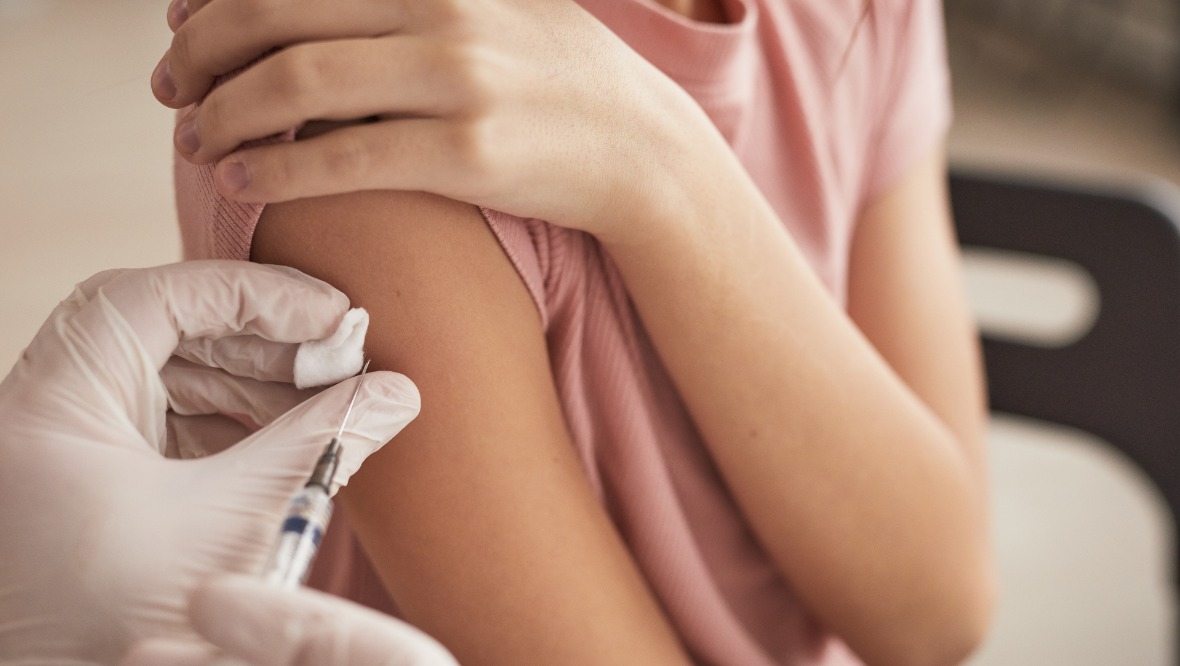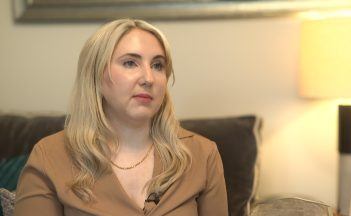The Covid vaccine can cause some variation to periods, new research has confirmed.
An international study has found vaccinations against coronavirus are linked to an average increase in the menstrual cycle length.
The findings say this is temporary and causes a change of less than one day for most people, however a smaller group of women experienced much longer delays of eight days or more.
Caitlin Brady, a community manager from Glasgow, said she noticed a significant difference after each dose of the jab.
“One of them caused me not to have period for a month, which if you’re a female you know the stress that causes mentally and on your body,” she told STV News.
“I used to have dates like clockwork,” the 30-year-old said, ” I use an app to track my periods and have for few years.”
Ms Brady said she did not think the coronavirus vaccine was connected with the changes to her cycle until after speaking to friends who had experienced similar reactions.
“As a female, there isn’t much information on this stuff. you just have to accept it and get on with it,” she said.
“You rely on speaking to other females to see what theirs is like, to gauge it.”
While a change in cycle of less than eight days is considered within the normal range, the study’s authors say the potential changes could contribute to vaccine hesitancy.
The study, funded by the National Institutes of Health, included data from nearly 20,000 people across the world including the United Kingdom, Canada, Europe and the United States who had received any of nice different vaccines.
Participants received Covid vaccines from Pfizer-BioNTech and Moderna as well as the vaccines made from engineered viruses (AstraZeneca, Covishield, Janssen/Johnson & Johnson and Sputnik), and inactivated viruses (Covaxin, Sinopharm, and Sinovac).
The study found that changes in cycle length did not differ according to the type of vaccine received.
A total of 19,622 individuals participated. Of these, 14,936 were vaccinated and 4,686 were not.
Of the total, 1,342 participants experienced a change in cycle length of eight or more days, comprising 6.2% of vaccinated people and 5% of those who were unvaccinated. Women who were younger and who had longer cycle length before vaccination were more likely to experience the increase.
Dr Diana Bianchi, director of NIH’s Eunice Kennedy Shriver National Institute of Child Health and Human Development, said: “These findings provide additional information for counselling women on what to expect after vaccination.
“Changes following vaccination appear to be small, within the normal range of variation, and temporary.”
But the study authors have called for future studies on other vaccination-linked changes to menstrual cycles including unexpected vaginal bleeding and menstrual flow and pain.
Although small menstrual changes may not be meaningful to health care professionals, the authors wrote, perceived changes in a bodily function linked to fertility may be alarming to those experiencing it and could contribute to vaccine hesitancy.
“It did make me think twice, I always trusted these things, but I wondered if everything had been done to understand and ensure the impact,” said Ms Brady.
“Ultimately, because I wanted to be protected and see vulnerable family members, I realised, weighing up the pros and cons, it was worth it.”
Follow STV News on WhatsApp
Scan the QR code on your mobile device for all the latest news from around the country


 SeventyFour via iStock
SeventyFour via iStock




















